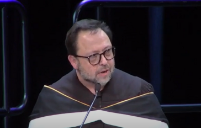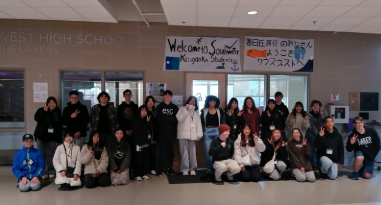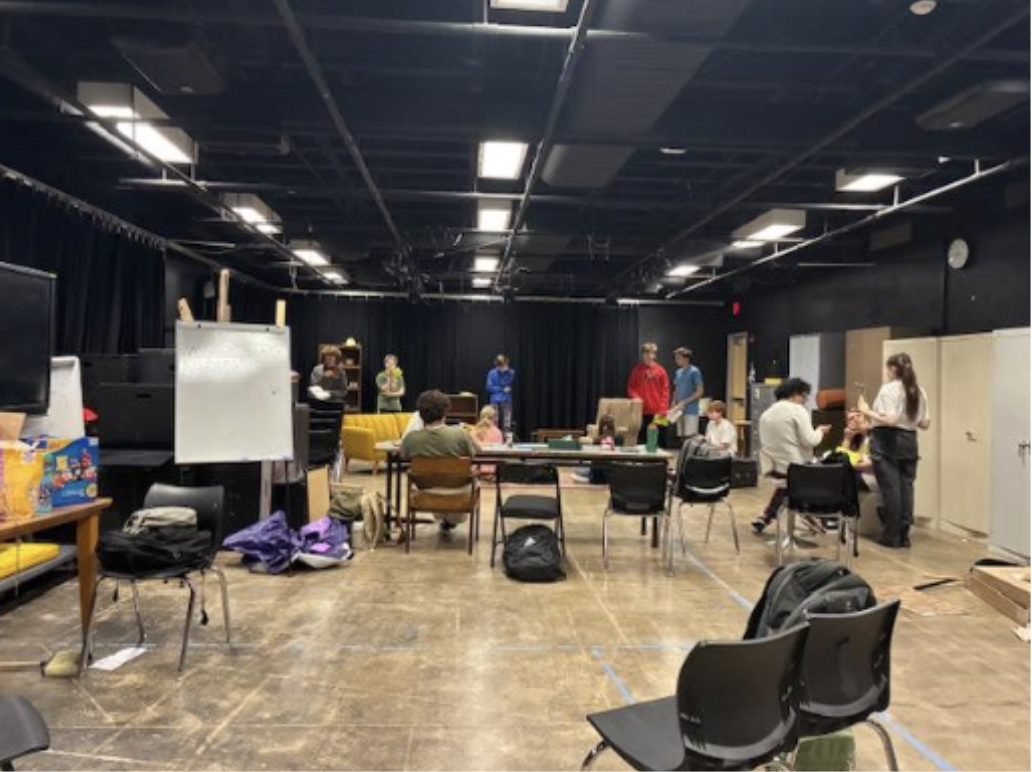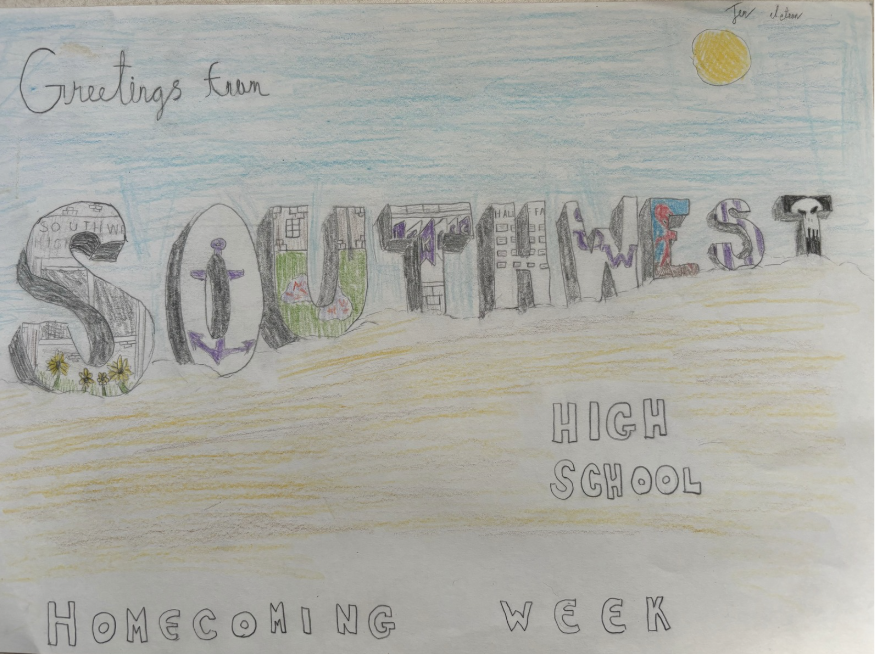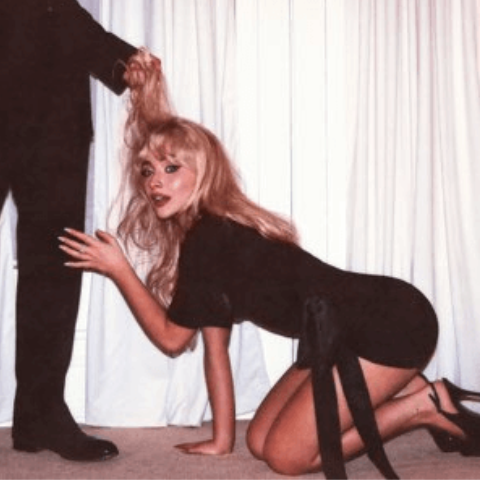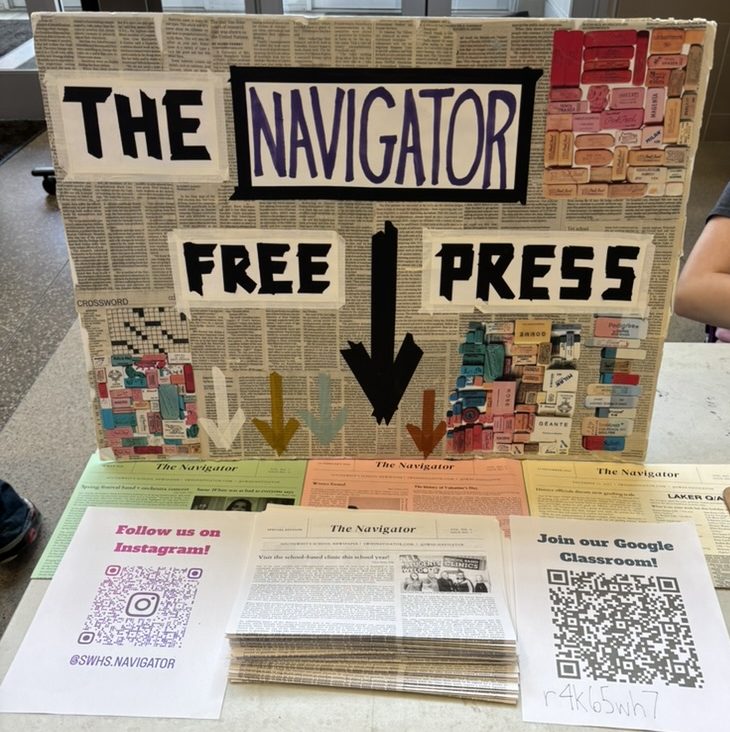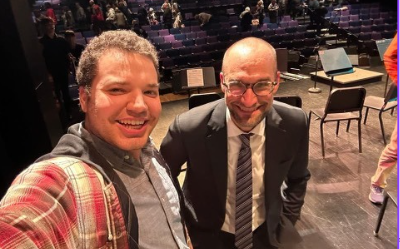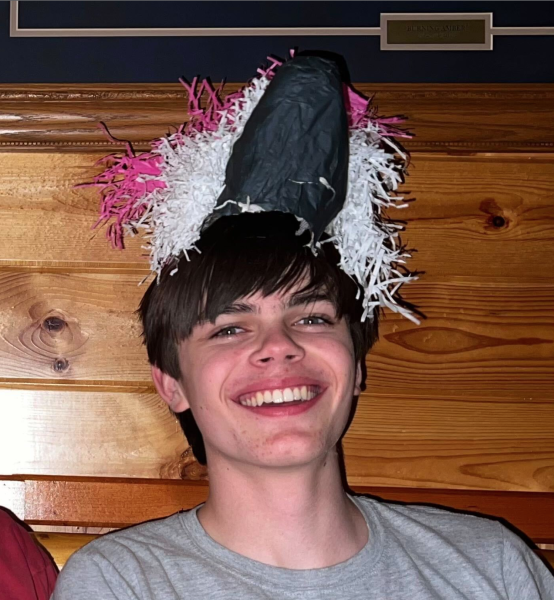The Navigator had the incredible opportunity to interview the retiring English teacher, Daniel Ferris. Ferris has been beloved by students and faculty alike for many years and has had an impressive and admirable career. Christina Jensen, another English teacher, will miss his humor and his “faculty-wide parking lot weather report emails that described with great detail how treacherous they were.” In an interview, The Navigator asked Ferris some questions about his career and future plans.
The Navigator: What are you most excited about for retirement?
Ferris: Free time. Getting a chance to read books that I don’t have to put on the teacher hat to read. It’s going to be hard to get over, because I think most teachers when you read something, you say “this would either be great for class or be horrible for class.” So, it’s nice to do away with that. I’d also like to write. There are so many teachers that think “I’m going to write in the summertime” and that doesn’t happen because there are other things that come up. It’ll be nice to actually be able to write.
The Navigator: What’s your favorite story to tell students?
Ferris: It probably is the chocolate milk story [in which he brought chocolate milk to parties where everyone was drinking alcohol and became known for it], because I find that endlessly amusing. There’s a part of it I never told anyone: a couple of years ago, for a cultural potluck, I went and bought a bunch of chocolate milk over at Jerry’s. In the process of coming back with it, I knocked over a stand and I was trying to pick stuff up. Another guy came over and was helping me. At one point we looked at each other and realized that we were best friends in high school. He was one of the guys who protected me from the people who got angry that I was drinking chocolate milk. So I told him, because he looked at the cart and said, “You’re still drinking chocolate milk?” I like this story because it seems to continue on in weird ways. I got together with old friends a couple months ago and they brought it up too.
The Navigator: What’s been your favorite book to teach students?
Ferris: My favorite one I no longer teach, but I just found out it’s gonna become a movie. And for the life of me, I have no idea how they’re gonna make it into a movie. It’s called Pedro Paramore and it’s very, very weird and existential. This guy goes back to his home village and it’s literally and figuratively a ghost. It’s similar to Spirited Away in some ways, and there are these ghosts that come in and out of his life and existence. You don’t know what’s going on. I love the book because it has this mood to it, and this creepy setting that I love. So that was probably my favorite book to teach.
The Navigator: How did you end up at Southwest?
Ferris: I was teaching at IDDS, which was a school in downtown Minneapolis. I felt like it was time for a change. I’d been there for quite a while and I helped start that program. I had started another program before that, and I had started another program before that. So I was on the string of starting schools for about 15 years. For some reason I got a reputation of being able to do it well, but I wanted something that was established. I taught in the Virgin Islands; I’ve always done things untraditionally. I thought maybe the traditional would be fun. [Southwest] was a wonderful fit because it wasn’t cookie cutter. Their expectation of the teachers wasn’t that we had to be all the same. We were given and still are given a lot of freedom. To be honest, I liked it more than I thought I might have. It was kind of like going corporate or something. Like, am I going to feel like a sellout? I didn’t because the people here, the students, are wonderful. There are a lot of thoughts that aren’t traditional.
The Navigator: What item in your room do you think about most often?
It’s not over there anymore, but I used to have a lava lamp that didn’t work, and it bothered me because it was right in front of me. I’d always look at it and think, “how can a lava lamp, even though it turned on, not bubble?” It looked nice. it was given to me as a present, so I didn’t want to throw it out. But why wasn’t it working? And, more importantly, how do I get it to work?
The Navigator: A lot of teachers talk about their best “teacher moments.” What’s been your best “teacher moment?”
Ferris: I’ve just had so many that it’s hard. This one wasn’t in the classroom. This was about a month ago. I got an email from a student that I had years ago. I had him in philosophy. And he wrote to tell me how much he appreciated my class, that he was finishing up his PhD, and his PhD thesis was based on a conversation that we had in my class. That kind of blew me away, knowing that what we talked about stayed with him. It was a great way to end a career. I don’t think there’s a day that goes by that I don’t have a wonderful moment with a student. After a while it becomes almost like an embarrassment of riches. I go home and think, “I know CEOs don’t get to experience this much satisfaction on a daily basis.”
The Navigator: What’s your system to formulate such thought provoking questions?
Ferris: I have to admit it’s probably narcissistic from the standpoint that they’re questions that I have, that I find interesting, and that if I was reading [the text], I would want to [answer]. Sometimes they’re just questions that I’m asking because I want to know the students’ reactions to them. This sounds corny and all that, but I tell you, the students here are so bright that I am almost always surprised at the answers. I don’t mean surprised that they were good answers, but I’m surprised at the perspective. I’ve taught these [books] for a long time and people can still come up with original ideas. A lot of times the reason I come up with the question is: I want to know what the answer is. Not that the answer is necessarily going to tie into the book, but how that answer is going to tie into their philosophy or perspective.
The Navigator: If you could say something to all of the students who’ve graduated from your class, what would you say to them?
Ferris: The joke answer would be “I’m sorry,” but I would actually say: “Thank you for making my job endlessly rewarding. But also educating me. I get to hear things that allow me to think differently. Thank you for being the students that want to be good critical thinkers.”


